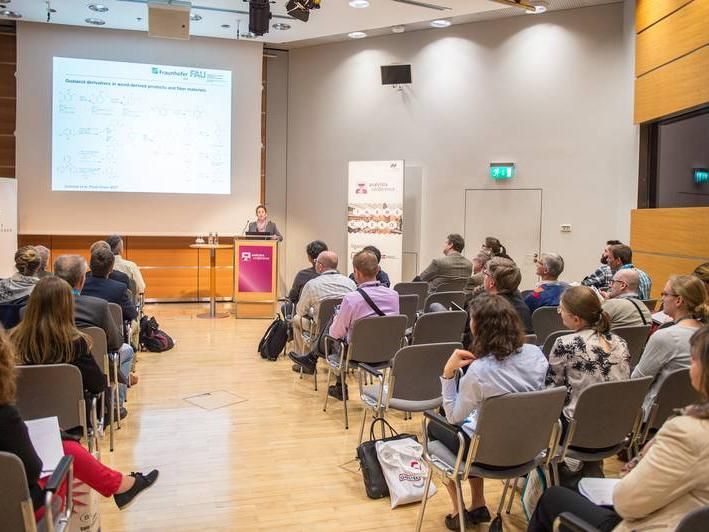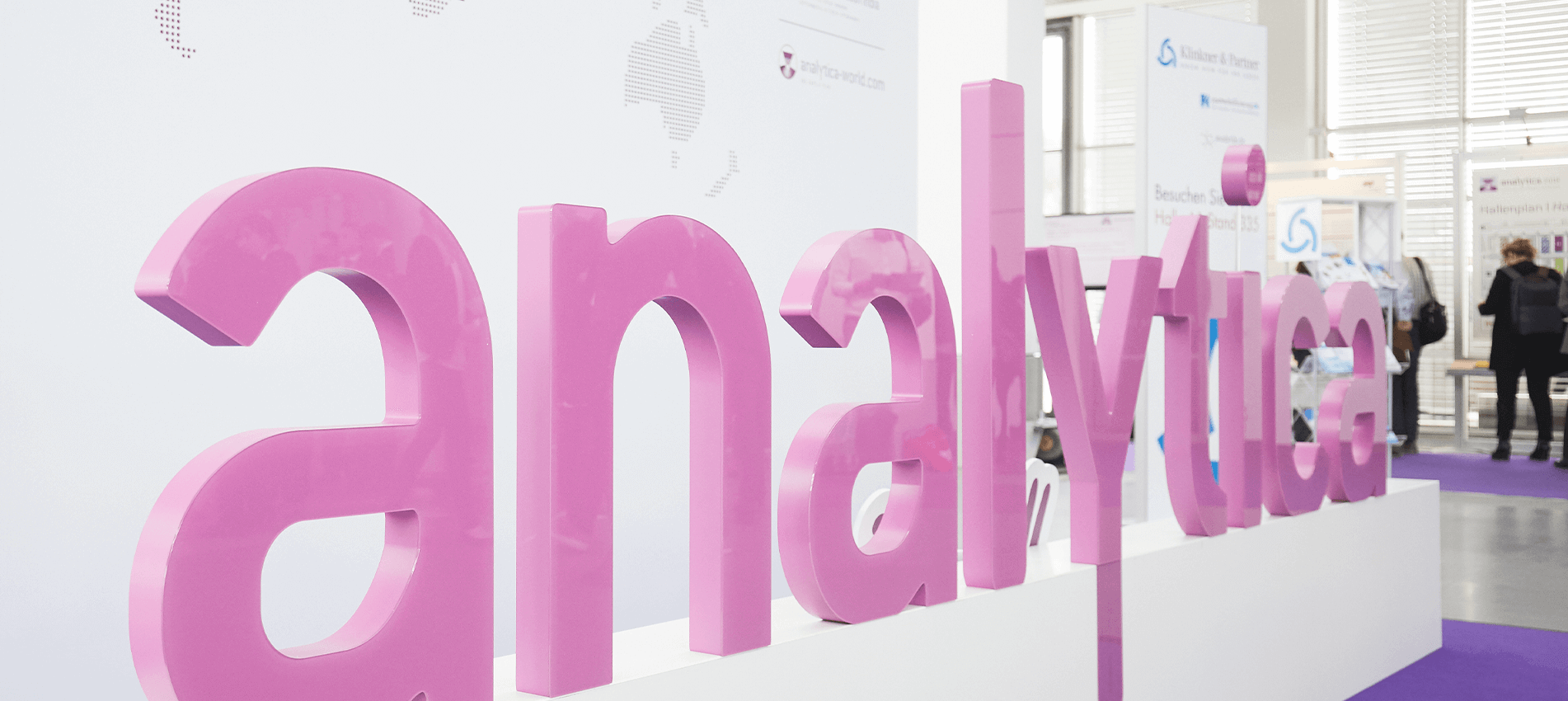News from the world of analytics
Research meets application at the analytica conference 2022
From June 21 to 24, 2022, analytica, the world's leading trade fair for laboratory technology, analytics and biotechnology, will take place for the 28th time at the Munich Exhibition Center. It will be accompanied by the analytica conference from June 21 to 23. In numerous sessions, scientists report on current topics from analytics, quality control, diagnostics, measurement and testing technology as well as from biotechnology and the life sciences. The scientific program of the analytica conference is organized by the Analytical Forum, composed of the German Chemical Society (GDCh), the Society for Biochemistry and Molecular Biology (GBM) and the German Society for Clinical Chemistry and Laboratory Medicine (DGKL).

© Copyright 2018, Messe München GmbH, all rights reserved
After the last analytica took place online due to the pandemic, there will again be the opportunity for personal exchange on site in Munich in 2022. The Analytics Forum has created an extensive program for the conference that covers almost all fields of analytics and presents the latest trends and developments. Central to this is that the topics always have a high degree of practical relevance, so that research and application both get their money's worth.
The high topicality can be seen, for example, in a session on aerosols and health. Among other things, it is about the limits and possibilities of investigations into the effects of exhaust gases on human lung cells. The presentation of a new photochemical method for toxicological investigations of aged aerosols from forest fires is about an innovative approach to measuring aerosols. Another lecture shows how photochemical processing affects the properties of aerosols resulting from combustion.
But current trends and developments in food and water analysis are not neglected in the program of the analytica conference either: One session is dedicated to the analysis of emerging dangers in food, for example. Among other things, the focus here is on mycotoxins - in particular new derivatives in the field of aflatoxin B1 - and the latest developments in their (bio)analysis; but also the analysis of pyrrolizidine alkaloids, carcinogenic plant toxins, is discussed. Water analysis is the focus of several sessions. Among other things, experts will provide information about the latest in rapid methods for detecting pathogens and antibiotic-resistant bacteria in the water cycle, about the challenges of non-target screening in water analysis and about how digitization can support modern water analysis.
These are just a few highlights of the scientific program. In a total of 45 sessions, proven experts provide insights into almost all areas of analysis. In addition, a number of scientific awards will be presented at the conference: the GDCh Division of Analytical Chemistry awards the Clemens-Winkler Medal and the Division Award prize for analytical chemistry, the Working Group Separation Science of the Division awards the Eberhard-Gerstel Award and the Gerhard-Hesse Award and the German working group Group for Analytical Spectroscopy (DAAS) of the Division awards the "Bunsen-Kirchhoff Award for Analytical Spectroscopy". An accompanying poster exhibition, supported by the companies Agilent and Merck, rounds off the program.
The analytica conference takes place in the ICM ? International Congress Center Munich, on the exhibition grounds. The conference language is English. Admission is free for visitors to analytica. The joint stand of the Analytics Forum is located in Hall B2, No. 505.
Other news from the department science

Get the life science industry in your inbox
By submitting this form you agree that LUMITOS AG will send you the newsletter(s) selected above by email. Your data will not be passed on to third parties. Your data will be stored and processed in accordance with our data protection regulations. LUMITOS may contact you by email for the purpose of advertising or market and opinion surveys. You can revoke your consent at any time without giving reasons to LUMITOS AG, Ernst-Augustin-Str. 2, 12489 Berlin, Germany or by e-mail at revoke@lumitos.com with effect for the future. In addition, each email contains a link to unsubscribe from the corresponding newsletter.
Most read news
More news from our other portals
See the theme worlds for related content
Topic world Diagnostics
Diagnostics is at the heart of modern medicine and forms a crucial interface between research and patient care in the biotech and pharmaceutical industries. It not only enables early detection and monitoring of disease, but also plays a central role in individualized medicine by enabling targeted therapies based on an individual's genetic and molecular signature.

Topic world Diagnostics
Diagnostics is at the heart of modern medicine and forms a crucial interface between research and patient care in the biotech and pharmaceutical industries. It not only enables early detection and monitoring of disease, but also plays a central role in individualized medicine by enabling targeted therapies based on an individual's genetic and molecular signature.
Trade-fair analytica
Here, innovative exhibitors present their trade fair innovations, premieres and product innovations for analytica 2024.

Trade-fair analytica
Here, innovative exhibitors present their trade fair innovations, premieres and product innovations for analytica 2024.
















































